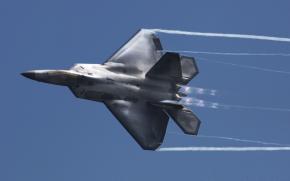Our money for their military
, a member of the Campus Antiwar Network at Hunter College, described how budget cuts in the City University of New York system are connected to the Pentagon budget at a campus forum in November.
I'VE ALWAYS heard that America is the richest country in the world, and I'm glad to know that this is true, because we don't actually see most of our money.
About 51 percent of the federal budget goes to defense. And this isn't defense like the word sounds like, either. About 34 percent of those defense costs go toward maintaining our so-called "global posture." This means maintaining a huge web of about 800 overseas military bases and installations, stuck like big, expensive thumbtacks in almost every country on the map--as well as paying for two wars and numerous smaller conflicts the U.S. is involved in.
The U.S. government spends about as much on the military as the rest of the world combined; we outspend our closest rival, China, by 10 times.
You may have heard of our black budgets for defense and spy agencies--it's basically free money given to the military, which they just decide how to spend themselves. Let me assure you, there is nothing like this in education or health care. The military black budget pulled down $50 billion last year; it's about equal to the whole military budgets of France or Britain or Japan.
As for the wars, the Congressional Research Service reports that Congress has directly approved about a trillion dollars for the operations in Iraq and Afghanistan and other operations associated with the war on terror.
All this would be a pretty heavy economic burden even without a recession. And I think in hard times like these, America should do what any family does, and take a good look at what we're doing with the money we do have.
NOW, I don't mean to put down the jobs that President Obama has created recently--in lobbying companies and the PR industry. Those are important contributions, and every little bit helps.
But these are not ordinary times. These are times when the national unemployment rate, including involuntary part-timers and those workers who have simply given up on looking, was 17.5 percent as of October. When there are 400,000 people in our own city who need work and can't find jobs. When, just days ago, Mayor Michael Bloomberg demanded cuts that would slash 12 percent off the city's spending, affecting almost every city agency. And when our own tuition has been raised $600, as transportation to school has become more expensive.
Here's another example. During this whole year of 2009, the MTA [Metropolitan Transportation Authority] has been raising fares and cutting service, mostly in working class neighborhoods in Queens, Brooklyn and the Bronx, because supposedly there just isn't enough money to maintain it. At the same time, one in five New Yorkers--some 1.5 million people--depend on food bank programs to eat.
But also for this whole year, according to the White House's own briefings to Congress, we've been spending roughly $1 million per individual soldier in Afghanistan. That includes transportation, supplies, and the salaries and equipment of the helicopter pilots and supply specialists behind them. It's the cost of the huge logistical machine that's able to transport a whole army to the other side of the world and keep it there--a machine that never seems to make it to Harlem or East New York.
There's plenty of food to feed those 1.5 million New Yorkers and anyone else who might want some. And it's all bought and paid for by us, and wrapped up tight and sitting in crates on some dock somewhere, waiting for transport. But it's not coming here; it's not going 15 minutes away into Queens. It's going 15,000 miles away, into Kandahar to feed some tired and hungry soldier--or some civilian who's lost a house and a leg in one of our air strikes or drone raids, if they're lucky. We may not have voted for these wars, but we're sure as hell paying for them.
I think we should take all those billions and billions of dollars and bring them back home. That money should be buying our medicine, paying our teachers and repairing our bridges. We need take it out of Iraq and Afghanistan and those 800 bases across the world that were built with money skimmed off the top of our paychecks while our roads and bridges crumble.
We need to take that money and dedicate it to building our futures, not to destroying someone else's--to building our economy, not to lining the pockets of a few contractors and multinationals.
Our current level of military spending is not just irresponsible, but reckless, wasteful and dangerous. Our society's needs have rarely been so acute or so arrogantly shouldered aside in favor of overseas military aggression and heartless power politics.
So the next time you hear about there not being enough money to pay for your health care; the next time you hear that it "just wouldn't be financially responsible" to charge you an affordable tuition, or that your daughter's child care center is no longer "fiscally viable," or that, for whatever reason, your future didn't make it into the government's latest appropriations bill, I want you to ask yourselves...Why not?



